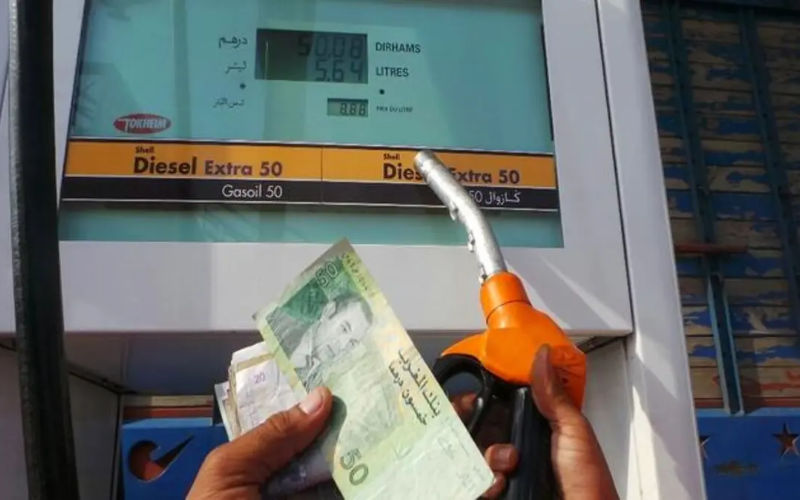Morocco Fuel Crisis Looms as Middle East Conflict Sparks Global Oil Surge

In Morocco, the surge in fuel prices is likely to last due to fluctuations in global oil prices, influenced by the military conflict between Iran and Israel. Concerned, the deputy of the Democratic Left Federation party, Fatima Tamni, questions the Minister of Energy Transition and Sustainable Development, Leila Benali.
The international markets have recorded a sharp rise in oil prices, with some indicators exceeding a 12% increase, influenced by the ongoing escalation in the Middle East and the growing geopolitical tensions, explains the deputy Fatima Tamni in a written question addressed to the Minister of Energy Transition and Sustainable Development, Leila Benali. She explains that such developments in global markets often have a direct impact on fuel prices in the domestic market and that this "weighs heavily on citizens, both in terms of the rise in fuel prices and the resulting increases in a number of other essential products".
For the elected representative of the Democratic Left Federation (FGD) party, "what surprises the public opinion is that national prices rise rapidly as soon as there is an increase at the international level, while we do not observe the same dynamics in the event of a drop in global prices, which raises questions about the pricing and control mechanisms of fuels in Morocco". She also questions the fate of the "La Samir" refinery. In this context, the issue of the "La Samir" refinery is resurfacing, as well as the "old, renewed and continuous" calls for its reactivation, as it constitutes "a wasted strategic infrastructure" that could have covered a large part of the national refining needs and reduced the vulnerability of the domestic market to fluctuations in international markets, according to the FGD elected representative.
Tamni seeks to know the proactive measures that Leila Benali’s department plans to take to limit the impact of fluctuations in global oil prices on the domestic market, as well as the reasons for the lack of implementation of a flexible mechanism to pass on the decreases in international prices to the local market with the same speed and efficiency as those observed during the increases. She also questions the minister on the government’s position regarding the reactivation of the "La Samir" refinery in the current context, which "confirms the urgent need for a national refining infrastructure preserving our energy sovereignty and reducing dependence on foreign countries, a constant and renewed call for this demand".
Related Articles
-

Mediterranean Shipping War: French Lawmakers Blast Italian Giant’s ’Predatory Dumping’
2 September 2025
-

Solo Traveler’s Moroccan Dream: Tamraght’s Hidden Coastal Charm Captivates Digital Nomads
2 September 2025
-

Morocco’s Airport Duty-Free Zones Spark Outrage: Dirham Debit Cards Rejected, Consumers Demand Change
1 September 2025
-

Morocco Braces for Fuel Price Drop: Diesel Could Plunge 30 Cents, Bringing Relief to Drivers
1 September 2025
-

French Air Traffic Strike Threatens Chaos: Over 1 Million Travelers Face Flight Cancellations
1 September 2025